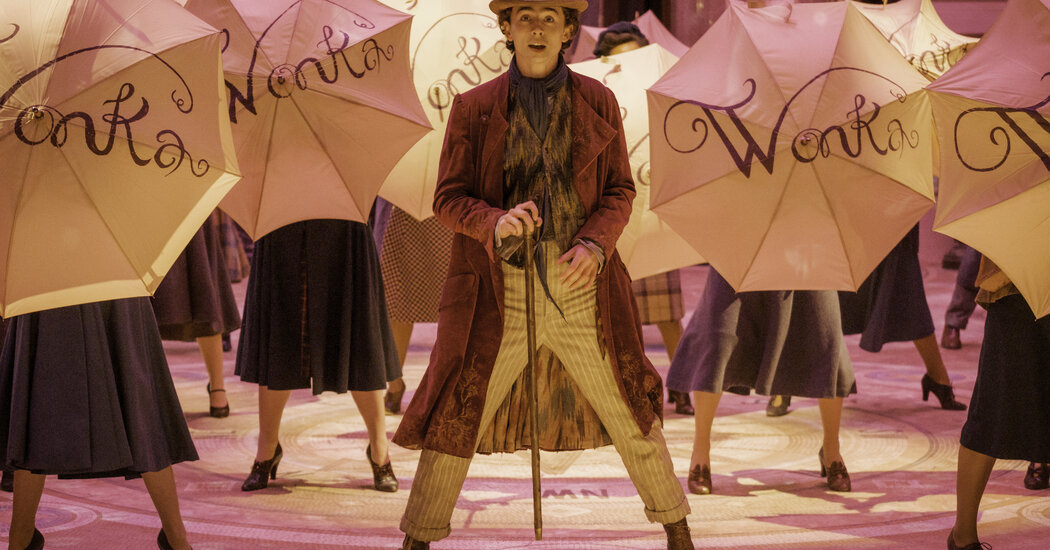Younger, sweeter and significantly less weird than his prior screen incarnations, the latest Willy Wonka — played by Timothée Chalamet — sets off on his adventure with a dream and a smile. For the next two hours, he keeps smiling, while sometimes singing, kind of dancing and concocting idiosyncratic treats like chocolates salted with, as Willy explains, “the bittersweet tears of a Russian clown.” Called hoverchocs, this particular delectable sends its nibblers flying. Alas, they weren’t given out at the press screening so I remained earthbound.
Movie franchises live forever, it seems, hence “Wonka,” a new musical origin story set in an earnest key about the first business ventures of the young Willy. It’s a bright, light movie — in palette and temperament — that’s stuffed with talented performers who seem to be having a pleasant time, even when pretending to be meanies. Its most distinctive quality is that it’s nice, with scarcely a hint of the misanthropy that burbles through Roald Dahl’s “Charlie and the Chocolate Factory,” the 1964 best seller that generated adaptations in assorted media, including two earlier films and a Broadway musical. (This movie has different music.)
Dahl’s novel and its two film adaptations feature an impoverished boy, Charlie, “a good sensible loving child” who pays a life-changing visit to a chocolate factory owned by the mysterious Willy Wonka. Directed by Paul King, “Wonka” turns back the clock to when Willy was a striver with near-empty pockets and a suitcase filled with enchantments. After years of sailing the world, he pursues his toothsome dreams in a Euro-ville pastiche, with a vaulted shopping arcade and a plaza large enough to hold big musical numbers. He soon encounters hurdles in the form of a cartel and a hotelier, Mrs. Scrubbit (Olivia Colman), who — in a plotline that mirrors one in the novel — hoodwinks guests into servitude.
“Wonka” has songs, old and new (the most memorable are from Mel Stuart’s 1971 film), dance numbers, a river of chocolate and no surprises. Among its least surprising attractions is Chalamet, an anodyne dreamboat who delivers an enthusiastic performance with a reedy tenor and awkward kicks, his floppy hair shimmying under Willy’s top hat. As the title suggests, Willy is decidedly the star: He enters perched atop a ship’s mast, an elevated position that he retains throughout. And while he soon has a child sidekick, a regulation charmer called Noodle (Calah Lane), the youngest of Mrs. Scrubbit’s indentured minions, it is Willy who now effectively has the role of the wide-eyed innocent once played by Charlie.


